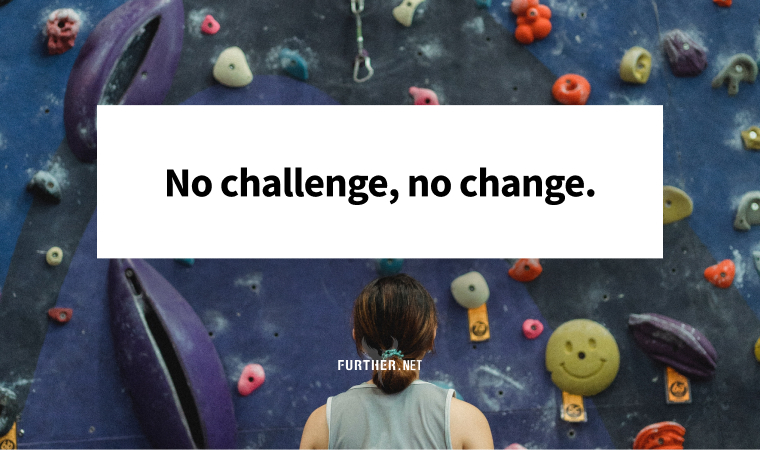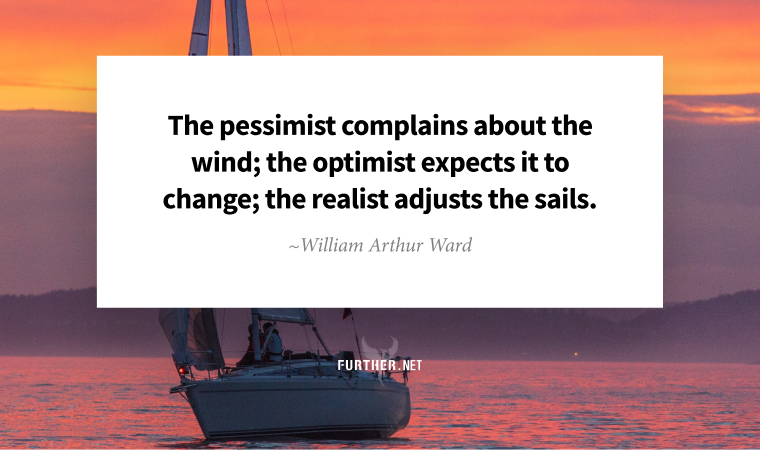
The most satisfying lives are those that involve challenge and struggle, says psychologist Paul Bloom.
After all, people “willingly climb mountains, run marathons, or get punched in the face in gyms and dojos.” That’s because despite being humans who are wired to seek pleasure, we have a strong competing desire for meaningful pursuits.
If this motivation is unsatisfied, life feels incomplete. And when it comes to working out, that doesn’t even touch on all the physical, mental, and aesthetic benefits that come with getting your move on.
We all need to move more regardless of our personal fitness level, and the challenge of just doing it is part of the glory. So with that said, are you ready for the first ever Further fitness challenge?
We’re kicking off the Well + Wealthy community with a fantastic free presentation from Krista Stryker of 12-Minute Athlete. It’s happening February 9, 2022 at 3pm Eastern / Noon Pacific, and registrants will get access to a recording if you can’t be there in person.
This webinar will give you the research, mindset, and motivation to get going on your own fitness plan. Normally there would a fee for this presentation, but we’re giving Further subscribers free access to celebrate our new program for living your best life at midlife.
You’ll then be prepared for your invitation to join us in Well + Wealthy, our new challenge and accountability community that helps you get started and keep going. More details on that soon.
But for now, let’s get you registered for the webinar. Space is limited, so get a move on this:
Keep going-
P.S. Stay tuned tomorrow for another amazing freebie from your friends at Further. Join us here if you’re not already a subscriber.
Morning Train
What’s better, working out in the morning or early evening? You might think the answer is “whatever works for you,” and you wouldn’t be wrong. But a few studies now suggest that morning exercise contributes more to fat loss, whereas late-day workouts might be better for blood-sugar control.
Is It Better to Exercise in the Morning or Evening?
A Space to Remember
If you’ve used something like Dualingo to learn a new language, then you’ve experienced the “spacing effect” for enhanced learning. In other words, you’ll learn more from short consistent daily lessons that emphasize recall and repetition than marathon cram sessions … which is nice, because who has time for that nonsense?
The Spacing Effect: How to Improve Learning and Maximize Retention
A Brand New Bag
In 2021, a lot of people started to rethink their careers and long-term goals, leading to the Great Resignation — a 20 percent increase in quitting compared to 2020. So far 2022 doesn’t seem to be the end of it, so here are some ideas.
How to Start a New Career: 9 Career Change Tips for 2022
HODL Now, Hit It
Yes, cryptocurrency is currently down (along with everything else). This likely means you shouldn’t sweat the short term of anything right now. Especially if you’re holding until a relatively distant retirement.
Crypto Is Redefining Retirement for Workers of All Ages, New Research Shows
No Regrets
Regret can increase stress and negatively affect your physical health. And while it’s easy to say “don’t have regrets,” it’s more helpful to understand that regret can be overcome through evidence-based strategies.
How to Overcome a Stubborn Regret
The Dark Side of Positive Vibes
By Trudi Roth
From the annals of life’s great ironies, in these days of COVID-19 being “negative” is a good thing. And the announcement, “I’m positive,” sends people fleeing.
However, there’s a lesson wrapped up in there too. Almost two years into a devastating pandemic with mental health issues spiking, it’s not so simple — or helpful — to force yourself or others to look on the bright side. Directives like, “cheer up” or “stop focusing on the negatives,” tend to have the opposite effect.
Now, this is not to say that all positive psychology is malarkey. Science shows that affirmations can help boost resilience and rational optimism is an effective way to take action in the face of adversity.
There’s a fine line, though, between garden-variety and toxic positivity. Understanding the differences is critical for sowing the seeds of greater well-being.
What is Toxic Positivity?
Fake cheerfulness used to suppress distressing or stressful situations or emotions like fear, depression, or grief is toxic positivity.
The general theme of toxic positivity is that someone is using positivity to cover up our true or negative experiences. It’s not that these toxic responses are bad advice, exactly. It’s just that they’re delivered in the wrong way at the wrong time.
So, for example, if you’re having a hard time at work, someone saying to you, “Be grateful you even have a job,” isn’t helpful. Similarly, if you’re suddenly out of work, the feedback, “It’s a blessing in disguise, you’ll find something better,” is equally annoying.
When positivity tips from being merely unhelpful to actually harmful, the real issues with toxic positivity surface, including:
- Emotional conversations — the kind that might prompt someone to get necessary professional help — are immediately shut down.
- Emotions are separated into good and bad, contributing to the stigma around mental health.
- Thinking you should be happy all the time is unrealistic and unhealthy.
All of this can lead to more suffering. Instead, root into reality and seek more productive — and realistic — ways to alleviate anguish.
Don’t Worry, Be Crappy
Because suppressing negative emotions is one of the key ways positivity becomes toxic, mindfulness can help you cultivate awareness and acceptance of negative emotions. Also, just because an emotion is negative doesn’t mean it’s bad. For example, research shows that embarrassment motivates forgiveness, and sadness can inspire others to help us.
Keep in mind this doesn’t mean accepting terrible situations — it just helps normalize your feelings and allows you to stop judging yourself for not constantly being happy.
Additionally, having empathy and compassion provides a sense of being seen, heard, and understood. And ultimately, that’s the most positive thing any of us can do for each other — and ourselves.
Toxic Positivity: Definition, Research & Examples (Berkeley Well-Being Institute)
further: flashback
 Heartbreaker – Pat Benatar
Heartbreaker – Pat BenatarIn the Heat of the Night , 1979
Heard Heartbreaker randomly on the radio over the weekend, and had forgotten how fierce this song is. Pat Benatar trained in opera with plans to attend Juilliard before shifting to rock, and that explains a lot about her amazing voice. (YouTube)
further: sharing

Further subscribers earn $MOVE coin by sharing Further with friends to gain access to our exclusive membership community Well + Wealthy (coming early 2022). Get your own free weekly dose of health, wealth, travel, and happiness advice here, and get all the details on our referral program.
Thank you for sharing Further!

